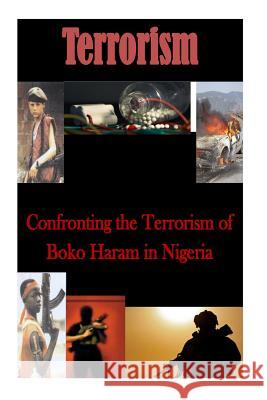Confronting the Terrorism of Boko Haram in Nigeria » książka
Confronting the Terrorism of Boko Haram in Nigeria
ISBN-13: 9781503025974 / Angielski / Miękka / 2014 / 180 str.
Nigeria, a key strategic ally of the U.S., has come under attack by a radical Islamic sect known as Boko Haram (a Hausa term for "Western education is forbidden"). It officially calls itself "Jama'atul Alhul Sunnah Lidda'wati wal Jihad" which means "people committed to the propagation of the prophet's teachings and jihad." As its name suggests, the group is adamantly opposed to what it sees as a Western-based incursion that threatens traditional values, beliefs, and customs among Muslim communities in northern Nigeria. In an audiotape posted on the Internet in January 2012, a spokesman for the group, Abubakar Shekau, even accused the U.S. of waging war on Islam.1 As will be described in this book, the group is largely a product of widespread socioeconomic and religious insecurities, and its ideology resonates among certain communities because of both historical narratives and modern grievances. Members of Boko Haram are drawn primarily from the Kanuri tribe (roughly 4 percent of the population), who are concentrated in the northeastern states of Nigeria like Bauchi and Borno, and the Hausa and Fulani (29 percent of the population) spread more generally throughout most of the northern states. Kanuri also inhabit regions across the northern border into Niger, and there is evidence to suggest that these tribal relationships facilitate weapons trafficking and other cross-border smuggling transactions, but this is the extent to which Boko Haram's activities go outside Nigeria. While it is very much a locally-oriented movement, the group has not yet attracted a significant following among Nigerians of other tribal or ethnic backgrounds. Further, it has thus far proven difficult for the group to find sympathizers or anyone who would help them facilitate attacks further south, thus the majority of attacks have taken place within the north (and primarily northeastern corner) of the country. Since 2009, the group has attacked police stations and patrols, politicians (including village chiefs and a member of parliament), religious leaders (both Christian and Muslim), and individuals whom they deem to be engaged in un-Islamic activities, like drinking beer. Boko Haram has also carried out several mass casualty attacks and is the first militant group in Nigeria to embrace the use of suicide bombings. A representative list of these attacks is provided in Appendix A of this book.
Zawartość książki może nie spełniać oczekiwań – reklamacje nie obejmują treści, która mogła nie być redakcyjnie ani merytorycznie opracowana.











